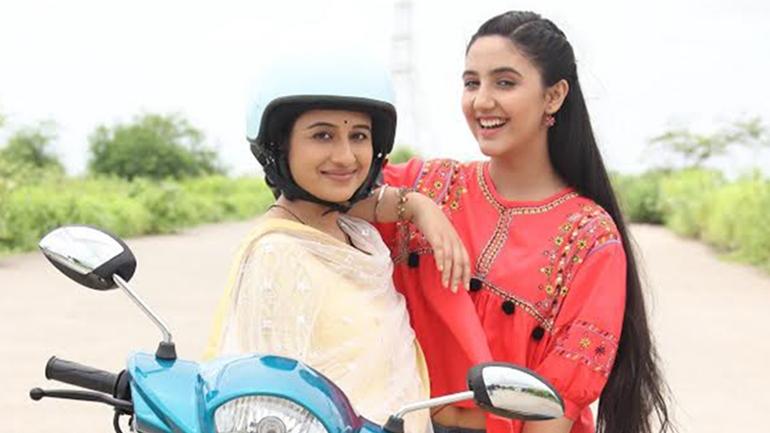Posted by Rajitha S
These days, when there is a stream of mediocre content on television, while Netflix and Amazon Prime have been releasing titles every other day, Sony TV seems to be delivering something slightly refreshing – a series named Patiala Babes.
The storyline is simple and predictable. Man cheats on his wife. Their daughter, who is raised to stand up for anything that is wrong around her, decides to take her mother out of the household where everyone is trying to deal with a new lady that the man, Ashok Khurana, brings home out of the blue.
Then the mother-daughter duo together decides to carve out their own paths. One would initially get glued to the show for the simple, realistic yet stellar performances of the actors. Babita, fondly called Babes by her daughter, Minnie are natural at the craft.
Gradually, the audience starts paying attention to the narrative. Let me begin with one of the most recent episodes where the ladies deal with the concept of shame internalised by women, thanks to patriarchal breeding of men and women through the years. It was dealt with an intensity that all women, maybe a few men too, would feel for real. Babita is so ashamed by the way she has been shamed by her husband Khurana, that she tries hard to get rid of the invisible dirt on her body by scrubbing herself incessantly.
Babita moves out of the house when she realises that she has been replaced. However, Khurana finds it difficult to deal with the fact that she is capable of making a choice. In fact, all the choices she makes thereafter lead to the mind-blowing scene where he insults her for existing as a woman. Relatable much?
The show also addresses another issue which I believe most TV shows and many feminist movements almost always miss – including men in the narrative of trashing patriarchy.
The characters cry, howl and bawl – read let their emotions flow as freely as any human should. While Babita and Minnie are crying their hearts out for being shamed, the other supporting male characters, hurt yet helpless, also cry in solidarity. Babita’s father-in-law is guilt-ridden for his son’s actions. So is her brother-in-law. No, it surely isn’t providing a solution, but at least the reality of some men is being brought to the fore. Like the father-in-law who is ashamed of his son’s cruel words, has nothing but regret for the words uttered by his son. And trust me, the words hurt. Ashok Khurana, Babita’s husband is an exceptional character at that.
The show also addresses another issue which I believe most TV shows, many feminist movements, and even many of us who are seeking an equal society almost always miss – including men in the narrative of trashing patriarchy. Most times men are not part of the discussions and I feel they have been missing out on how far women have come and hence do not understand how to deal with them and their right to choose. Seems like Patiala Babes is subtly addressing this too.
Also read: 17 Ways Popular Media Like Television & Cinema Could Be More Gender-Sensitive
The supporting role of inspector Hanuman Singh is not just doing that. His character also breaks the stereotype of ‘Alpha’ male, where Singh is a feminist in most ways. His role is to provide when necessary. Like when the ‘babes’ do not have the means to pay rent, he offers the extra space in his house which has been lying vacant for a while. But that is all. There is no interference whatsoever, in any other aspect, unless he is sought for advice. He speaks when he is asked to speak for them. No instances of mansplaining
The talks about the free pass that most men think they have to shame women only to defend their ego and gain control that has been lost. That might not change much, but it sure is a start for a man to reflect on the oppressive mindset. It might strike a chord, no?
Women holding hands and standing up for another is an appreciated portrayal of female bonding.
Also, women in this show do not pick on each other and start wars over men, like most common Indian TV saga narratives. There is no character of the ‘vamp’, who has the
Meeta stops her partner when he plots to assassinate Babita’s character. When she fails at that, she moves ahead to speak to him about his cruel moves. She acknowledges that their relationship is selfish and steps up to help Babita set up her life. When Khurana has nothing left to do but emotionally blackmail her to leave, she makes it clear that she would have left him the moment she learnt about his marital status, but stayed on because she was too deeply in love with him. This only shows that she was human, and realistic, as she acknowledges the fact that her relationship with Khurana is a selfish one.
On the other hand, when Babita’s lawyer suggests that the only way to win the divorce case along with alimony and maintenance is by shaming Meeta, she rejects the idea. She says she wouldn’t knowingly make a woman feel that way she was made to feel.
In Meeta’s defence, Khurana does not reveal his marital status to Meeta for three years until when Meeta was too deeply in love with him. Meeta states that she respects Babita and will take responsibility to help Babita. Women holding hands and standing up for another is an appreciated portrayal of female bonding.
For ages, people have had misconstrued notion of feminism – as bashing all men, mostly. But this show shows that is not the case through its well-layered narrative and by touching upon all the main aspects of feminism. Yes, there are women behind the scripting and production of the show.
Also read: What Exactly Is Happening With Ishqbaaaz And Why Is Star India Still Silent About It
It may not be the perfect portrayal, but it is refreshing, entertaining, and also impactful, especially to the demographic of the audience it caters to at 9 pm in Sony TV. You can also binge-watch it on the SonyLiv app.
Rajitha S is a former journalist with a national daily and is currently on a break teaching mass communication to undergraduates at a private college in Bhutan. You can follow her on Facebook and Twitter.
Featured Image Source: India Today
About the author(s)
Rajitha S is a former journalist with a national daily and is currently on a break teaching mass communication to undergraduates at a private college in Bhutan.




